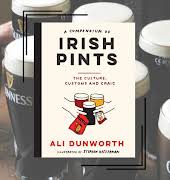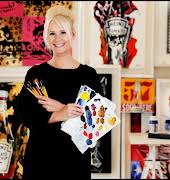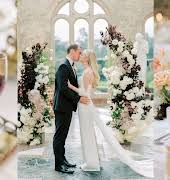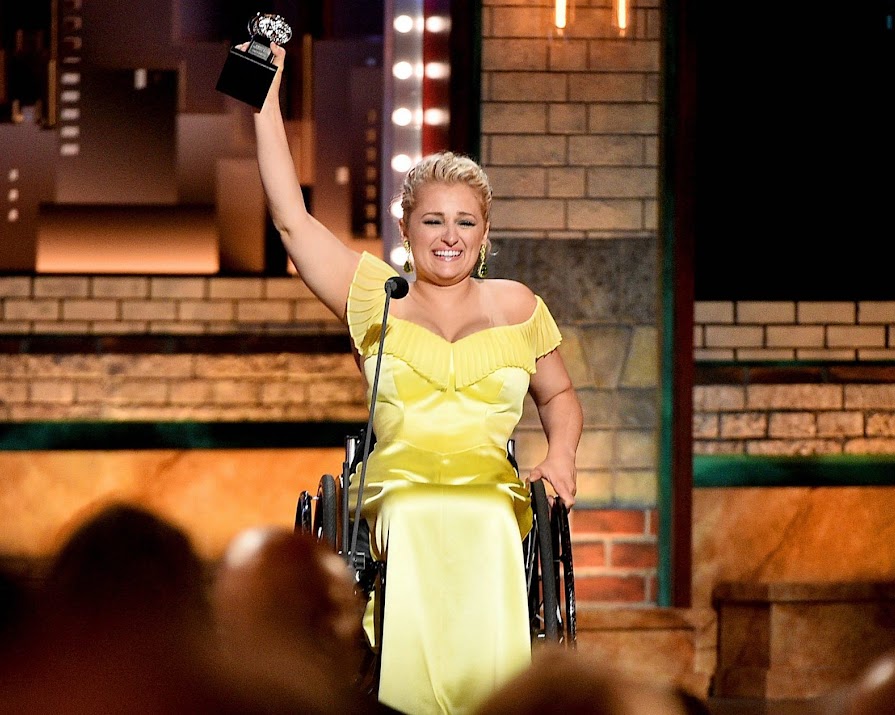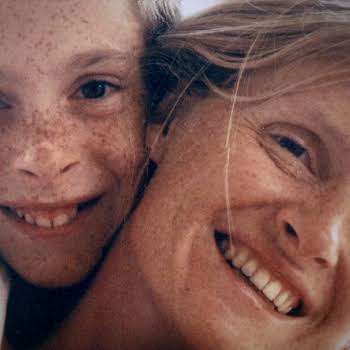
‘I know exactly what it’s like to be looking for someone who looks like me’
By Jennifer McShane
10th Jun 2019
10th Jun 2019
Actress Ali Stroker has become the first wheelchair user to be nominated for, and win, a Tony Award. It’s a historic moment for Ali and also for those watching with disabilities, says Jennifer McShane
I’ve been obsessed with culture and the arts for as long as I can remember. Many of us become immersed in that universe because we look for ourselves – or the version that we would like to be – on stage, on screen or in the pages of a book. But that was never the appeal for me, a woman with mild cerebral palsy. Instead, I usually watched with a yearning. So that’s what life would be like having the full use of your body, I frequently thought. It’s an entirely different world from my own. One not perfect, but easier. You have more options, at the very least.
Because I never saw – and I rarely see – a woman using a wheelchair or walking frame get the dream guy or girl at the end of the movie. Winning an Oscar? Fully-able-bodied actors are currently only granted this privilege. They’re acting, how could they possibly know of the limitations that come with a disability? They glide on stage with full use of their limbs essentially praised for two-hours as an able-bodied person sitting in a chair (not strictly, but you know what I mean) and I sit at home, rolling my eyes.
Related: ‘I remember hearing the words “she’s disabled” and wondering who they were talking about’
I get that we need actors. I’m grateful that Daniel Day-Lewis played Christy Brown – the Irish artist and poet with cerebral palsy – in My Left Foot and I saw a glimpse of myself as an outsider. I’m happy that Marion Cotillard played Stephaine – a woman who loses both her legs in an accident – in Rust and Bone and tackled the initial awkward sex scenes with gritty realism. But their experiences aren’t real in any sense; they are presumed.
I need more than presumptions in a role model; I want to see the person with the disability portray it as it should be (and bag the award for it).
But perhaps I should start looking to the stage instead because I was gleefully happy when US actress Ali Stroker has become the first wheelchair user to be nominated for, and win, a Tony Award. She won best featured actress for her role as Ado Annie in the Broadway play, Oklahoma!
She said the win was for “every kid” with a “disability, a limitation or a challenge who has been waiting to see themselves represented in this arena.”
There she was: glowing, gorgeous and beaming in her wheelchair as she proudly dedicated her speech to those who knew what it felt like to feel left out – or left behind.
“Looking for role models”
“I know exactly what it’s like to be looking for someone who looks like me. It makes me feel amazing to be able to be that for them because I didn’t have that as an 11-year-old girl pursuing this dream.”
Ali Stoker says she didn’t have Broadway role models when she was growing up: “I know exactly what it’s like to be looking for someone who looks like me” #TonyAwards https://variety.com/2019/legit/features/ali-stroker-oklahoma-diversity-1203223954/ pic.twitter.com/vWQqIbu0Ze
— Variety (@Variety) June 9, 2019
Even her character – “a sensual, all-singing, all-dancing Annie,” attempts to get rid of a stereotype and helps to alter perceptions of disability and sexuality.
“I think that this role has come at such an important time in my life both as an actress and as a person,” Stroker told Vulture, “because I feel like I have arrived in my sexual power, meaning that I feel the most confident I’ve ever felt in my life. Especially growing up and as a teenager, I was always looking for role models who were in chairs.”
“I always felt like a sexual person – I just didn’t know how to always portray that, and I never really was sure, as a kid, if being in a wheelchair could be sexy. So, to arrive at this point is so exciting – more than exciting, it’s like a relief in many ways. Because finally we get to see someone who is so real.”
Even with her receiving a standing ovation, the accessibility issues were painfully still obvious – as a ramp had not been built to the stage, Stroker was forced to enter from the wings rather than from the audience with her fellow castmates – another obstacle which separated her.
Related: ‘A wheelchair gave me physical freedom, but my third lease of life comes from buying tickets for one’
But up on stage, she stood out for all the right reasons, her talent recognised and the moment cemented as one that will linger in the minds of those with disabilities who look for themselves and never see them.
Until now, that is.
Main photograph: @THR

